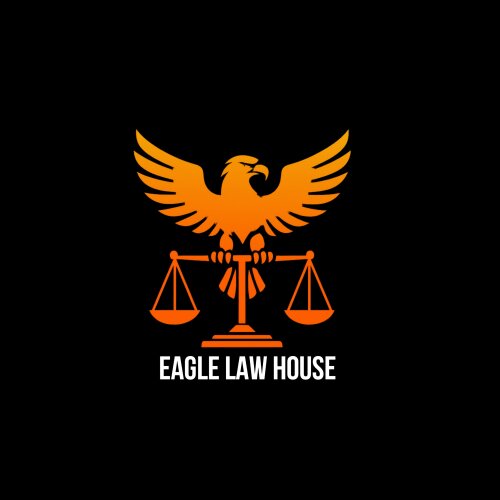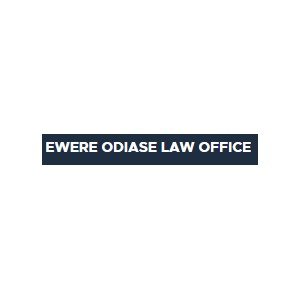Best Licensing Lawyers in Nigeria
Share your needs with us, get contacted by law firms.
Free. Takes 2 min.
Or refine your search by selecting a city:
List of the best lawyers in Nigeria
Legal guides written by Adeola Oyinlade & Co:
- Procedure and Requirements for Work Permit and Visas in Nigeria
- The Step-By-Step Procedure of How to Apply for Microfinance Bank License Online in Nigeria
- How to Ensure the Smooth Recognition and Enforcement of Foreign Judgments in Nigeria
Nigeria Licensing Legal Articles
Browse our 1 legal article about Licensing in Nigeria written by expert lawyers.
- Requirements And Procedure for Acquiring Aviation Licence Under Nigerian Law by Foreign Airline Participation
- In Nigeria, the procedures for obtaining an aviation license under Nigerian law include adherence to the Aviation Act, which provides a legal foundation for the aviation industry. Globalization has caused a paradigm shift in Nigeria's aviation business, resulting in greater foreign airline participation and foreign direct investment, which has been... Read more →
About Licensing Law in Nigeria
Licensing law in Nigeria governs the conditions and requirements for obtaining various types of licenses necessary for individuals and businesses to operate legally within the country. This encompasses a wide array of sectors, such as broadcasting, telecommunications, intellectual property, manufacturing, and more. Licensing is essential for regulating industry standards, ensuring safety, and promoting fairness and competition. The process and requirements for licensing can vary significantly depending on the type of activity or business being licensed.
Why You May Need a Lawyer
There are numerous situations where one might require legal assistance with licensing in Nigeria. Common scenarios include:
- Understanding and navigating the complex regulatory framework of licensing in a specific industry.
- Assisting with the preparation and submission of licensing applications to relevant government authorities.
- Legal representation in the event of disputes or hearings involving licensing issues.
- Advising on compliance with the rules and regulations attached to specific licenses to avoid penalties.
- Helping in cases of alleged licensing violations or revocations by regulatory bodies.
Local Laws Overview
Nigerian licensing laws are governed by various statutes and regulations specific to different sectors. Key aspects include:
- Telecommunications: Regulated by the Nigerian Communications Commission (NCC), requires licenses for broadcasting, operating telecom services, and other related activities.
- Intellectual Property: Governed by the Nigerian Copyright Commission (NCC) and the Trademarks, Patents, and Designs Registry for handling copyrights, trademarks, and patents licensing.
- Business Operations: Companies may need operational licenses or permits from relevant ministries such as the Ministry of Trade or the Corporate Affairs Commission (CAC).
- Infrastructure: Construction and development might require specific permits from agencies like the Federal Ministry of Housing and Urban Development.
- Environmental Permits: Managed by the National Environmental Standards and Regulations Enforcement Agency (NESREA), necessary for businesses that can impact the environment.
Frequently Asked Questions
What is a license?
A license is a formal permission or authority given by a competent authority to engage in a business, activity, or occupation. It usually comes with specific requirements and regulations that must be followed.
How do I apply for a business license in Nigeria?
The application process varies based on the type of business. Typically, it involves submitting an application form along with required documents to the relevant regulatory authority. Online portals are also available for most licensing applications.
How long does it take to obtain a license?
The time frame can vary depending on the type of license and the efficiency of the regulatory body, ranging from a few weeks to several months.
What happens if I operate without a license?
Operating without a necessary license can lead to fines, legal action, the closure of your business, or other penalties by the regulatory authorities.
Can a license be revoked?
Yes, licenses can be revoked if the holder fails to comply with the licensing conditions or engages in illegal activities.
Do licenses need to be renewed?
Most licenses have an expiration date and require renewal. The renewal process ensures continued compliance with regulatory standards.
What documents are usually required for a license application?
Documents typically include identification, proof of business registration, tax identification, and sometimes additional sector-specific documents.
Are there fees involved in obtaining a license?
Yes, fees are generally required and vary depending on the type of license. These fees cover administrative and processing costs.
How can I check the status of my license application?
You can check the status through the same portal or contact point where the application was submitted, such as a regulatory office or online platform.
Is legal representation required for obtaining a license?
While not always mandatory, legal guidance can significantly streamline the process, ensure compliance, and prevent costly errors.
Additional Resources
For further assistance, consider reaching out to the following resources:
- The Nigerian Communications Commission (NCC) for telecommunications-related licenses.
- The Nigerian Copyright Commission (NCC) and Trademarks, Patents, and Designs Registry for intellectual property issues.
- The Corporate Affairs Commission (CAC) for business registration and operational licenses.
- The National Environmental Standards and Regulations Enforcement Agency (NESREA) for environmental permits.
- Professional legal firms specializing in licensing and regulatory compliance.
Next Steps
If you need legal assistance in licensing, consider the following steps:
- Identify your specific licensing needs based on your business or activity.
- Reach out to a legal professional or firm with experience in licensing for consultation and representation.
- Prepare the necessary documents and information required for your license application.
- Submit your application to the relevant regulatory body, seeking legal support if needed.
- Stay informed and compliant with renewal processes and regulatory requirements once your license is obtained.
Remember, obtaining and maintaining a proper license is crucial for lawful and successful business operations in Nigeria.
Lawzana helps you find the best lawyers and law firms in Nigeria through a curated and pre-screened list of qualified legal professionals. Our platform offers rankings and detailed profiles of attorneys and law firms, allowing you to compare based on practice areas, including Licensing, experience, and client feedback.
Each profile includes a description of the firm's areas of practice, client reviews, team members and partners, year of establishment, spoken languages, office locations, contact information, social media presence, and any published articles or resources. Most firms on our platform speak English and are experienced in both local and international legal matters.
Get a quote from top-rated law firms in Nigeria — quickly, securely, and without unnecessary hassle.
Disclaimer:
The information provided on this page is for general informational purposes only and does not constitute legal advice. While we strive to ensure the accuracy and relevance of the content, legal information may change over time, and interpretations of the law can vary. You should always consult with a qualified legal professional for advice specific to your situation.
We disclaim all liability for actions taken or not taken based on the content of this page. If you believe any information is incorrect or outdated, please contact us, and we will review and update it where appropriate.
Browse licensing law firms by city in Nigeria
Refine your search by selecting a city.
















